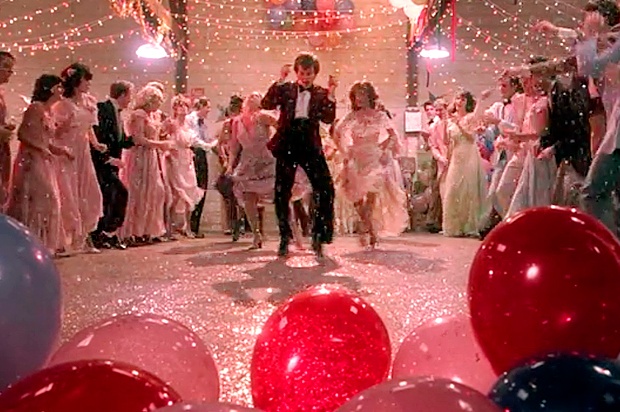 Screencap via youtube.com
Screencap via youtube.com
Back in 1985, the Parents Music Resource Center did their best to keep kids from listening to Cyndi Lauper. Today, record companies are filing suits against people who download without paying, and the families of deceased musicians are suing artists like Pharrell Williams for stealing beats and melodies.
But Cyndi Lauper never went to jail for sexy lyrics, and nobody’s trying to lock up Pharrell. For that matter, it looks like nobody’s ever gone to jail for downloads. At worst, you’ll be at the sharp end of an expensive lawsuit, not inside a prison jumpsuit, for bootlegging music.
With music in our homes, cars, headphones, and TVs, it’s easy for us to forget that not everybody has such easy access to art. In Saudi Arabia, your middle school band teacher would be a criminal, and not just because he tried reefer at that Allman Brothers show at Watkins Glen. Here are five times that music was criminalized – some of them more recent than you’d think… and much closer to where you live.
1. This rapper’s lyrics were called a crime
San Diego rapper Brandon Duncan, aka Tiny Doo, was charged with being a gang conspirator when some of his lyrics bore a resemblance to details of a gang shooting in 2013. Duncan, who has never been convicted of any crime, admits to being in a local gang as a teenager back in 1997, but says he had nothing to do with shootings attributed to the Lincoln Park Bloods.
Duncan’s street life rhymes both chronicle and condemn the thug lifestyle he saw while growing up in one of California’s toughest neighborhoods, but today he’s a family man with seven kids. However, charged with nine counts of “gang conspiracy,” this artist could go away for 25 to life if a court finds that he “benefited from” and “promoted” gang violence…even though no one alleges that he himself took part in the shootings.
2. This town in Kentucky banned all secular music
Growing up in rural Kentucky in the 1970s, writer Angela Pneuman lived under a strict Protestant Evangelical code. Her town of 3,000 revolved around the local Bible college, and any music outside of the church was forbidden, drawing comparisons to the plot of Footloose.
In what seems like a parody of conservative paranoia, school kids were visited by music “experts” who managed to find messages to Satan when playing Led Zeppelin and the Eagles backward. (Okay, maybe Led Zep, but the Eagles?) Cassette mixtapes make a convenient contraband, but bound by their own consciences, these Kentucky kids threw theirs in the fire before the devil could tempt them.
3. All music has been banned in Somalia
Known as a haven for sea pirates, the east African nation is considered a failed state, with some reports saying that the official government controls less than half of its own capital city, Mogadishu. With power divided among insurgents and local strongmen, Somalia is fertile ground for restrictive laws that can seem insane to westerners.
In the last decade, all music has been banned in the country, decreed contrary to Islam (although that religion has a tradition of wonderful music, much if it devotional in nature, that goes back for centuries). Local rulers commenced the closing of radio stations to prevent the intoxicating sounds of both Somali and Western tracks from reaching anyone’s ears. Of course, in rural territory that’s contested by different armed groups, shutting down communication could have tactical motives as well as religious ones.
4. Music classes are illegal in Saudi Arabia
One might guess that this staunch US ally would be one of the more progressive or liberal nations in the Middle East, but when it comes to music, one would be wrong. Although there are working musicians in the Arab power, and individuals still train others in singing and playing, official music classes have been deemed immoral and forbidden by the religious judiciary. As a result, no Saudi school or college offers courses in music.
5. Want to go to a rock show in Germany? Not on Easter weekend
That’s right, it’s illegal to perform music in the European nation at any time during Easter weekend, a tradition that was formalized by a controversial national law.
By the way, you can’t dance during that weekend, either. This places us all in danger of someone making a German version of Footloose, a concept that could be a comic classic. But we should all be vigilant when it comes to restrictive laws that tell us what we can play or listen to, because censorship is no laughing matter.
Jesse Sterling Harrison is an author, recording artist, and part-time farmer. He lives in Massachusetts with his wife, three daughters, and a herd of ducks.


